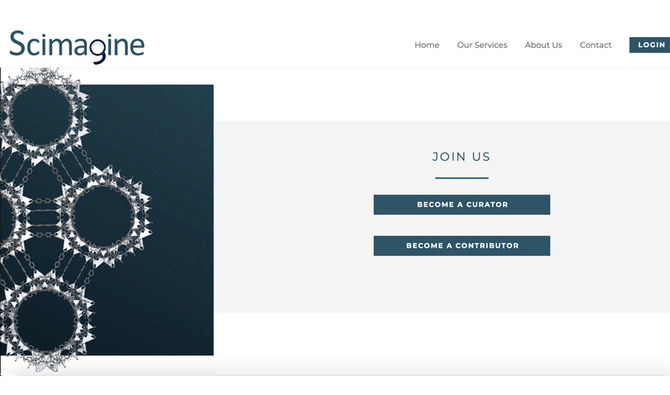Scimagine is a startup that functions as a materials-related, experimental data cloud-storage and management platform.
The digital database is located at King Abdullah University of Science and Technology (KAUST) and was co-founded by Natalya Julfakyan and Dr. Khachatur Julfakyan, also known as “Khach.”
“Scimagine is a cloud-based web application with an advanced, searchable database at its core, acting as a storage for experimental data management, indexing, search analysis and visualization,” Khach told Arab News. “What makes the Scimagine platform unique is the ‘map’ developed solely to structure and categorize massive amounts of scientific concepts and parameters, whether logical or numerical.”
The idea for Scimagine came when he was a doctorate student and noticed a problem that he and other scientists faced in their work.
“Scientists cannot search and find most scientific experimental data in one single place. When these articles are published, much of their content is invisible to students and readers as they are hidden in PDF files of supporting materials to scientific articles.”
Scientists can store their data in a cloud to preserve it, invite their collaborators to contribute to their project, share, manage and edit research projects. All this is done privately until the article is published.
“From there, the experimental data underlying the published article is made available. Scientists can publish the data themselves to the indexing database, which is part of the platform, without any additional effort, making their research searchable and visible as never before, which attracts more citations and exposure,” he said.
When experimental data does not fit with the article’s philosophy or direction, it is sent separately as a report to preserve precious science from going to waste.
“This is the only platform that offers a specifically tuned cloud storage and indexing database for material scientists that unites cloud storage, electronic laboratory notebooks, research management and the indexing database in a united and affordable web-based application.”
Natalya was working with faculty members in KAUST, helping them turn their research data into something visually attractive, when she found that the internet held no customized visual representation for material science concepts.
“That’s when StockNANO was born; it is a unique part of the Scimagine platform that helps scientists create and share all kinds of scientific visuals, from photos, videos and animation to infographics and edugraphics,” said Natalya, who runs StockNANO and is the editor in chief of Scimagine.
Scimagine was awarded the Kingdom Impact first Runner Up Award by the KAUST Entrepreneurship Center and led to backing from the KAUST Innovation Fund.
“Scimagine’s platform wouldn’t have been created without the generous support of KAUST. We received not only funding from KAUST, but also intensive entrepreneurial courses, mentorship, business consultation and scientific consultation,” said Khach.
As a hub for scientists from various disciplines and geographic locations KAUST has enabled the Scimagine team to discuss the platform with many of their peers, helping them fit further requirements into the final product.

































